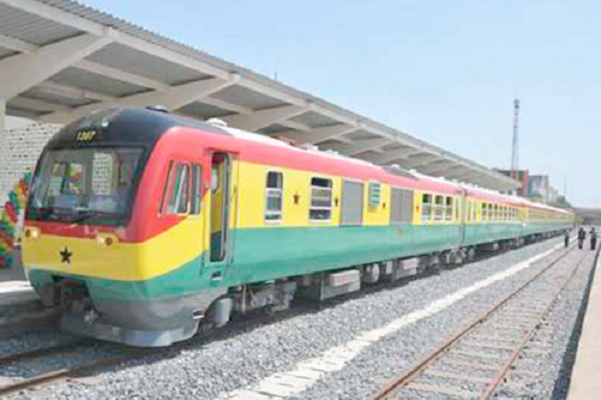
Vibrant Ghana Railway sector in the offing
The establishment of a Ministry dedicated to the development of railways in February 2017, by the President , Nana Addo Dankwa Akufo-Addo was enthusiastically welcomed by all stakeholders in the transportation industry and Ghanaians in general.
For the older generation of Ghanaians who had experienced a dominant rail sector in the 20th century when the Ghana Railway Corporation was running efficiently, this step by the President was long overdue.
Eighteen months after the ministry’s establishment, the enthusiasm in some Ghanaians has waned slightly but the truth remains that processes are far advanced to revive the rail sector in Ghana.
Decay
The level of decay experienced over the years in the rail sector has necessitated a more elaborate approach to reversing the trend. This requires changes in the legal and institutional frameworks governing the sector, as well as meticulous negotiations and procurement processes for the various raillines of the Ghana Railway Master Plan.
This is to ensure the success of the Public Private Partnerships (PPPs) that are key in undertaking such a capital intensive venture.
Additionally, the highest engineering standards are required to guarantee a vibrant and efficient rail sector in Ghana.
There is definitely no cause for alarm as the leadership and management of the Ministry of Railways Development and its agencies, the Ghana Railway Development Authority and the Ghana Railway Company, are working around the clock to meet all deadlines and to ensure that there is value for money.
In tandem with the construction of the rail lines, the ministry has proposals in place to develop master plans for all the towns that will be traversed by the new railway lines. The associated infrastructure that will accompany the rail lines is of utmost importance.
The programme known as the ‘’Stations to Cities” will pave the way for local professionals of the built environment; engineers, architects, city planners and landscape architects to build towns where buildings are designed in context and neighbourhoods rely more on mass transit for mobility.
It is a matter of fact that all new rail lines being constructed or about to be constructed will be Standard Gauge (SG).
These projects must not be misconstrued with the rehabilitation works of some existing Narrow Gauge (NG) rail lines.
Work is currently underway on the 85km Tema-Akosombo SG line as part of the multimodal transport system.
A bridge will be constructed across the Volta Lake to make way for a container port at Mpakadan.
Construction works are also ongoing on the 22km Kojokrom-Eshiem (SG) Line section of the Western Line.
In respect of the existing NG lines, the rehabilitation works of the Takoradi-Tarkwa section of the Western Line is nearing completion.
The rehabilitation works of the Accra-Nsawam NG section of the Eastern line is also progressing steadily.
The defunct Railway Training School at Essikado is being rehabilitated.
Reviving the school is top on the list of priorities of the Ministry of Railways Development (MORD).
A memorandum of understanding (MoU) has been signed between the MORD and the George Grant University of Mines and Technology to begin offering Rail Transport and Engineering courses at the Railway Training School in October this year.
This measure will guarantee that the technical know-how needed to construct, maintain and run the rail lines will be available locally.
These international courses to be offered by the school will bring as many local professionals to speed on the current trends in rail development.
This will ensure many Ghanaians enrol and acquire certified knowledge and skills in railway related services.
Those who have had training can then become trainers of trainees, including staff members.
It is understandable that a section of the public is doubtful of the commencement of the priority rail projects before the year 2020.
I am confident that contracts will be awarded for the commencement of construction on the Eastern Line, Western Line and Central Spine Line by the end of the year.
We must, however, not lose sight of the fact that the development of the National Rail Network is in itself a mega construction project, one that will need more than four years to accomplish and have a huge impact on Ghana’s economy.
Alteration
It will involve the alteration of land through the development of new industrial estates, creation of economic zones, the development of new settlements, the creation of inland rail terminals and general infrastructure development in many towns.
Ghanaians can only take advantage of numerous opportunities that abound in the rail sector if we produce enough people with the technical know-how in rail development and find ingenious ways to support local construction firms and built environment professionals to compete with international firms.
Ghanaians should be rest assured that the railway has come to stay. With the amount of work done so far, there is definitely light at the end of the tunnel.
The writer is an architect-planner at Habitance Hub, an urban planning and design studio in Accra, Ghana.
